Ok, has this happened to any of you recently? You turn up to a gig to see a band that you really like. You know that there’s a support band and you’ve checked them out online. The videos on YouTube are dire but what do you expect? The lens on the cameraphone has been rubbed up against the greasy pocket lining of someone’s unwashed 501s for several months and the microphone’s about the size of a pinhead. And they keep waving the damn thing around. Come to think of it, it’s really annoying when you’re at a gig as well; why don’t you just put the camera away and enjoy the gig?
Where were we? Oh yeah, support bands. So you get to the gig and find out that there’s an extra support band. It’s great for the venue because the punter thinks they’re getting something extra. The only thing Milton Friedman ever said that I agree with is “There’s no such thing as a free lunch”; it’s particularly true here. You know why those extra bands are there, don’t you? They’re either playing for nothing, or, even worse, they’re paying to get the gig. Why would they do that? They do it because they’re desperate to be on stage; they’re the same kind of delusional wannabes that live music fans get so smug about when they talk about X Factor and Britain’s Got Talent. They do it for nothing because they aren’t good enough to get paid for it.
So why do venues put on crap bands; that doesn’t make any sense, does it? Well, people don’t get that delusional without an extensive support network and all the family and friends who are bigging them up will go along to watch them. Admit it, it sounds cool at work to say “I went to watch my mate’s band last night”, doesn’t it? Next time someone says that to you make them squirm by asking if they were any good and watch them check who can hear before they answer. Anyway, to get back to the point, the venues get all of these hangers-on coming along to support their mates. They make the gig look busy and, more importantly, they buy drinks at the bar; makes sense now doesn’t it?
And these bands come in different flavours as well. I’ll give you two for starters. How about a young, good-looking (male or female) leader who couldn’t carry a tune in a rucksack, surrounded by reasonably good musicians who should know better? They sound great until the lead vocal comes in with all the sonic beauty of polystyrene being scraped down a patio door. It’s even more worrying when you know that you’re going to get a brave but foolhardy attempt at vocal harmonies from the rest of the band when you reach the chorus. But at least they’re young and they’ll probably grow out of it.
What’s even worse is the band made up of middle-aged men who are lawyers or bankers or middle managers who have enough money to buy really good kit and enough time on their hands to meet up to practise blues standards once a month. They wanted to be rock stars when they were young but they weren’t good enough. Guess what guys; a Les Paul and a Marshall stack with a dozen stomp-boxes and a pair of tastefully ripped jeans doesn’t change that. But they bring the entourage along with them and they all get enthusiastic and cheer and whoop for their band. And that’s another thing, this rent-a-mob only listen to their band. As soon as their (hopefully short) set finishes they either ignore the rest of the bands or try to out-shout them.
And they get away with this because we’re all too polite. We clap at the end of each song that they’ve ritually disembowelled instead of showing how we really feel. That’s the mistake we make; these people have the hide of a titanium-plated rhinoceros and absolutely no self-awareness; the only way to make them stop is extensive and repeated humiliation. Next time you see one of these bands and their posse of braying followers, boo them, hiss at them, wince visibly when they play or sing out of tune, turn your back on them, go to the toilet but, whatever you do, don’t encourage them. Go on, you know you want to.
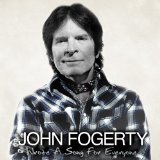 So, what’s this all about then? John Fogerty, former Creedence Clearwater Revival frontman and highly respected solo artist has decided to revisit some of his back catalogue with a few collaborators and throw in a brace of new songs for good measure. It’s not a new idea and it can be either a cynical attempt to cash in on a few good, old songs or a chance to invite fellow musicians to put their stamp on your songs. I’m really pleased to say that “Wrote a Song for Everyone” is a fascinating look at the heritage of one of the great rock songwriters and performers. You have to approach this with an open mind; some of the songs, in their original incarnations, were massive teenage favourites of mine through happy and sad times but there are some radically different interpretations here. The conventional view is that Eagles popularised the country-rock genre, but you could make the same case for Creedence if you take your country influences from New Orleans rather than Bakersfield; just a thought.
So, what’s this all about then? John Fogerty, former Creedence Clearwater Revival frontman and highly respected solo artist has decided to revisit some of his back catalogue with a few collaborators and throw in a brace of new songs for good measure. It’s not a new idea and it can be either a cynical attempt to cash in on a few good, old songs or a chance to invite fellow musicians to put their stamp on your songs. I’m really pleased to say that “Wrote a Song for Everyone” is a fascinating look at the heritage of one of the great rock songwriters and performers. You have to approach this with an open mind; some of the songs, in their original incarnations, were massive teenage favourites of mine through happy and sad times but there are some radically different interpretations here. The conventional view is that Eagles popularised the country-rock genre, but you could make the same case for Creedence if you take your country influences from New Orleans rather than Bakersfield; just a thought.
The album opens with “Fortunate Son”, which is amped-up by the Foo Fighters to a full-on rocker (no surprise there) before Keith Urban delivers a banjo-led country-rock version of “Almost Saturday Night” which takes the song back to its lyrical roots and “Lodi” (probably my favourite John Fogerty song) gets the Status Quo “Rocking All Over the World” treatment with John’s two sons Shane and Tyler Fogerty. Incidentally, this is the only collaboration that Fogerty arranged, pulling rank with his two sons when he didn’t like their country-rock arrangement. “Mystic Highway” is one of the new songs and breaks down into 3 sections, the main song, an instrumental section and an a capella breakdown with a strong feel of the Doobie Brothers “Black Water”. “Wrote a Song for Everyone” features a Miranda Lambert vocal and some exceptional guitar work from Tom Morello; so far so good.
The Zac Brown Band reworking of “Bad Moon Rising” in a Cajun style works less well for me, losing the brooding menace of the original version. “Long as I can See the Light” with My Morning Jacket sticks fairly close to the original, retaining the organ riff which characterises that version and is followed by Kid Rock’s take on “Born on the Bayou”. Apparently it’s now a violation of several federal statutes to record a collaboration album without including a Kid Rock track. The album’s second new song “Train of Fools” follows, exploring similar territory to Springsteen’s recent “Land of Hope and Dreams”. It’s obvious that John Fogerty can still write a good song and the new songs sit very comfortably alongside his earlier work on this album.
“Someday Never Comes” with Dawes has Taylor Goldsmith singing the verses about the things we tell kids (and adults) to shut them up while Fogerty takes the choruses as the gruff old bad guy who tells us that it’s all lies. Bob Seger delivers the Woodstock song “Who’ll Stop the Rain” very much in the style of his 1976 classic “Night Moves”, which works very well. If any singles are to be released from the album, “Hot Rod Heart” should be top of the list. It’s a great driving song (maybe it’s time we had an alternative to the lazy radio programming of Don Henley’s “The Boys of Summer” every time the sun shines for more than five minutes) and the last couple of minutes consists of Fogerty and Brad Paisley trading superb guitar solos and generally having a good time. I bet Paddy McAloon wouldn’t like it.
“Have You Ever Seen the Rain” with Alan Jackson works perfectly with a pure country arrangement with banjo, fiddle and steel guitar filling out the sound and leads us into the last track of the album. I’ve heard many versions of “Proud Mary”, but nothing quite like this. The first verse and chorus are pure gospel with Jennifer Hudson backed by a gospel choir and the wonderful Allen Toussaint before speeding up to a Cajun boogie with the full band and accordion and horns for good measure. I used to think the Ike & Tina Turner version was over the top, but they only used one kitchen sink and I think there’s about three here. It’s a glorious way to end a great album.
John Fogerty has survived in the music business for a long time with all of the usual peaks and troughs that anyone big in the sixties and seventies went through including the publishing disputes, particularly the publishing disputes. The reason he’s still around is that he loves what he does and he’s very good at it. “Wrote a Song for Everyone” is a very, very good album.
Out now on Vanguard (88765487152).
 Previously Bristol-based but now residing in Berlin, Emika’s self-titled debut album two years ago was a study in contained, claustrophobic vocal dubstep. I’m not talking about the stuff that catapults you onto the ceiling because of the sheer force of the bass wobble but a smaller, more accessible art pop alternative. It was quite low-fi and often beautiful with a palpable sense of menace. “DVA” is less reliant on dubstep, a genre so omnipresent now it is merely predictable (see latest offender, Kylie’s “Skirt”) and has been partially replaced by a more straightforward electronic sound with an orchestral slant and inspiration.
Previously Bristol-based but now residing in Berlin, Emika’s self-titled debut album two years ago was a study in contained, claustrophobic vocal dubstep. I’m not talking about the stuff that catapults you onto the ceiling because of the sheer force of the bass wobble but a smaller, more accessible art pop alternative. It was quite low-fi and often beautiful with a palpable sense of menace. “DVA” is less reliant on dubstep, a genre so omnipresent now it is merely predictable (see latest offender, Kylie’s “Skirt”) and has been partially replaced by a more straightforward electronic sound with an orchestral slant and inspiration.
The tone is very firmly, but also somewhat misleadingly, established by The City of Prague Philharmonic Orchestra’s appearance on the brief introduction track “Hush”, also featuring an operatic vocal by Michaela Srumova, never to appear again here. The fanfare of synths that opens “Young Minds” mimics the classically-structured arrangements that are at core of “DVA” and I say mimic because this is a predominantly electronic and not acoustic album. Apart from on one other track, the intricate and mournful “Dem Worlds” at the album’s centre which is just violins and Emika’s stranded vocals, strings are introverted and subtle and peek through only occasionally with mainly piano and keyboard melodies creating a more traditionally classical sound.
“She Beats” is spooked and monotone, spoken word electro dub followed by “Filters” where separate piano and synth melodies make compatible companions. “Sing To Me” has a major dubstep whomp and “Centuries” is medievalist electro pop as perfected by Natasha Khan. “Searching” begins as a misleadingly sweet sounding r’n’b girl group pop song, albeit in a minor key, and contains the surprising lyric ‘look into my eyes, tell me where your thoughts come from, Bitch’. This track brings to mind more than anyone else Charli XCX who successfully subverted the nineties girl group genre on her recent album although Emika does so in an even more fractured way here.
Throughout Emika’s delicate but unrefined and muddied vocals seem too keen to stay in the background; they are often pitched way back in the mix and are at times whispered, played backwards and, in a year where there has been some excellent synthesiser work by the likes of Miss Kittin and Adult, some tracks sound under produced and dull. An anaemic cover version of Chris Isaak’s “Wicked Game” only highlights “DVA”’s flaws with bored and boring, semi-inaudible vocals and a flimsy soundstage and after a far stronger first half there are more of these far less engaging tracks to be found as the album’s considerable running time gets into its final quarter.
“DVA” does not fully live up to its initial, early promise of drama and clear-headed statements of a formal and electronic nature. Although Emika is a vocalist who may have a style of her own, it’s one which doesn’t always fit easily into the bold sonic stories she appears to be trying to tell here. Tracks that work well, and there are several, are more of a continuation of the dubstep, trip-hop sound of her debut and can stray closer into pop here. Emika is an unusual artist, certainly, who will need to gain the confidence required vocally to at least bring a more expansive and dynamic sound to the fore and allow her to fully inhabit the fascinating and unsettling worlds she seems desperate to share with us.
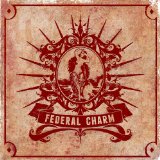 I have one rule of reviewing that I never break. I never read a review of something I’m about to review myself. It’s a good discipline because I know that I’m not being influenced by anyone else’s opinion. It’s been really difficult with this album because the press releases and Facebook posts I’ve seen have all made me realise that it needs hard work to do this justice because all of the obvious comparisons have already been made and I’m not going to repeat them.
I have one rule of reviewing that I never break. I never read a review of something I’m about to review myself. It’s a good discipline because I know that I’m not being influenced by anyone else’s opinion. It’s been really difficult with this album because the press releases and Facebook posts I’ve seen have all made me realise that it needs hard work to do this justice because all of the obvious comparisons have already been made and I’m not going to repeat them.
This is a very, very good debut album from a band who have everything in the locker; strong songs, great playing and outstanding vocals all combine to create a very listenable and accessible funky rock album from this Manchester band. Federal Charm are Nick Bowden (vocals and guitar), Paul Bowe (guitar), Danny Rigg (drums) and L.D. Morawsk (bass), they’ve been together for about two years and this, their first album, features eleven original songs plus a cover of the Lowell Fulson classic “Reconsider Baby” (listed here as “Reconsider”).
The band draw their inspiration from the classic British blues-rock period of the early 70s and play with the assurance and verve of a much more seasoned outfit. There are obvious influences which I won’t bore you with, but you can also hear touches of Wishbone Ash, Thin Lizzy and the Stones in their twin guitar arrangements, which are under-pinned by powerful drumming and basslines which are more melodic than you might expect from a rock band. Throw in an occasional touch of Hammond or piano, and you’ve got a classic rock cocktail. And then there’s the vocals; Nick Bowden has a superb rock voice and he’s equally at ease with the all-out rockers and the slow bluesier material.
The album kicks off with two riff-driven rockers (“I Gotta Give it Up” and “I’m Not Gonna Beg”) before slinking into a funkier groove with “No Money Down” and the slow blues of “Somebody Help Me”. “Reaction” takes the pedal back to the metal before a keyboard swell eases into the brooding menace of “The Stray”. “There’s a Light” and “Tell Your Friends” are funky strutting riff-rockers leading to another tempo change for the superb rendition of “Reconsider Baby”. It’s a brave choice given the list of blues players who have already covered the song (Eric Clapton and Joe Bonamassa off the top of my head) but it works because it’s played at a slower tempo and the emphasis is on the vocal rather than the guitars. “Come on Down” is powered by another funky riff, while the final two songs “Any Other Day” and “Too Blind to See” nod in the direction of the Stones, particularly the intros.
As a debut album, this is a great snapshot of Federal Charm. They wear their influences proudly and they move effortlessly from slow blues to balls-out rockers. The track sequence works perfectly as the album starts and finishes on big rock songs and the slower songs create a contrast to the more raucous rockers. It’s full of melodic invention and great playing from all four members and the quality of the songs is excellent from start to finish.
While I thoroughly recommend the album, I have to say that you really should make the effort to see the band live to get maximum bang for your buck; they play with a self-assurance that never steps over the line into arrogance and Nick Bowden’s voice is superb live. They’re playing all over the country in next few months to promote the album, so get yourself out there and see them.
Out on Monday July 1 on Mystic Records (MYSCD213).
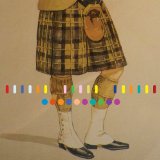 For those who don’t know, Future Bible Heroes is one of pop intellectual and professional miserablist Stephen Merritt’s many musical side projects that he occasionally flirts with when he’s not otherwise engaged in his main gig of being the most dominant, growling member of the everlasting The Magnetic Fields. Following a self-imposed hiatus from electronic music over a three album period The Magnetic Fields returned to synth pop, a general term, on last year’s mostly underwhelming “Love at the Bottom of the Sea”. Future Bible Heroes released their last album in 2002 and this, their third, feels very much like a more leisurely, and superior companion piece to that last Magnetic Fields album.
For those who don’t know, Future Bible Heroes is one of pop intellectual and professional miserablist Stephen Merritt’s many musical side projects that he occasionally flirts with when he’s not otherwise engaged in his main gig of being the most dominant, growling member of the everlasting The Magnetic Fields. Following a self-imposed hiatus from electronic music over a three album period The Magnetic Fields returned to synth pop, a general term, on last year’s mostly underwhelming “Love at the Bottom of the Sea”. Future Bible Heroes released their last album in 2002 and this, their third, feels very much like a more leisurely, and superior companion piece to that last Magnetic Fields album.
“Partygoing” sees vocal duties being shared between Merritt and The Magnetic Field’s Claudia Gonson, a change from their last collection, ‘ Eternal Youth’, where Gonson led on every track with Christopher Ewan remaining as music supervisor. Lyrically themes of old, or the old, remain; ageing, unrequited love, loneliness, drug and drink reliance and keeping children in comas (for their own safety of course). Musically, British mid-eighties synth pop is Ewan’s main template and sometimes also the weak link on an album where some of the strong melodies, certainly some of the best Meritt has written for a while, still require some musical gravitas to prevent them from becoming jokey novelty songs, a problem which plagued the Fields last album.
“Let’s Go To Sleep (And Never Come Back)” sees Claudia Gonson listing the reasons as to why she needs to finish with life (‘can’t afford the children, can’t afford the rent’, sing it sister) with the usual, detached ironic humour typical of Merritt over a soundtrack that sounds like a Yazoo demo with this reaching its natural conclusion later in the album with the brilliant “Digging My Own Grave” which mimics a Moroder-produced Sparks track; it’s funny and, crucially, substantial. “How Very Strange” is a clanking, melancholic variation of the Pet Shop Boys and Dusty Springfield’s “What have I done To Deserve This?” with Merritt playing Dusty (‘I put a little heroin in everything you took in’ is the answer Merritt gives to Gonson, altogether puzzled by her situation) to Gonson’s male lead gender swap and is fantastically arch and satisfying and the only time the two sing together here.
I personally find Merritt’s baritone bellow sometimes harder to take than Claudia Gonson’s plaintive, asexual stance. His dominant drawl, not exactly full of subtleties, can rob songs which are already lyrically sarcastic and ironic enough, of any crucial sincerity or truth. However on at least two occasions here, the catchy mid tempo pop structure of “All I Care About is You” and sad “Sadder than the Moon”, Merritt does move. On the raucous music hall of “Drink Nothing but Champagne” we have comedy voices (an impersonation of David Bowie, which is funny the first time you hear it) and a sing-a-long chorus which comes off more as a gimmick than a solid song or performance. Gay, tortured and funny John Grant covered similar lyrical themes of neurosis and alienation on his spectacular “Pale Green Ghosts” album from earlier this year updating his sonic soundtrack to that of an inspired sharp electronic stew and this is where “Partygoing” can fall short. Musically it’s often the case that a good melody (in particular see the title track) is undermined by a horribly, thin and trite synthetic soundtrack. It can sound unfinished and one wonders just how fantastic some of these tracks would be with a propulsive production, the music here sometimes sounding like a self-conscious, piss-take of pop itself; an ironic nudge too far.
It is sometimes difficult to see where The Magnetic Fields ends and the Future Bible Heroes begins especially as an outlet for his electronic compulsion, the main purpose of the group, given that Stephen Merritt has returned to this in his other group. Of course this doesn’t really matter and honestly, given the disappointment of The Fields’ last full length album which was all fur coat and no knickers, “Partygoing” does in fact feel more like an unexpected treat from the same band rather than alternative one given that, although it covers pretty much the same areas sonically and lyrically, it does so in a far more seductive and ultimately satisfying manner.
This exciting five-piece band from Canterbury headlined the Africana fundraiser tonight, raising money for projects in Kenya. They formed in 2011 and only a year later, won the accolade of the UK’s best unsigned act. They describe their music as ‘Fip Fok’ (the title of their first EP), a bouncing hybrid of folk, pop and hip-hop; even checking them out on You Tube before the gig, I was excited about the evening’s entertainment. They feature a unique set-up of guitar, banjo, double bass, violin and beat-boxing so the sound is unlike anyone else I’ve heard.
The support acts: Brighton’s The Beatnik Horrors and singer songwriter, George Olgivie were good too making the long wait for the headliners a real warm up. The Beatnik Horrors are a post-Chilli Peppers rock act with 3 guitars and helium vocals from their tom-boy lead singer, Ari playing memorable and distinctive songs. George Olgivie is an acoustic singer-song-writer with a nice vibrato, playing covers and original material who will release a self-penned EP in July.
It was late in the evening when the Butterfields started their set; C&TB are used to playing a variety of arenas from busking, which they still do, to thousand-seater theatres, but they seemed particularly at home in this large music pub, having brought some of their loyal tribe with them. The audience are mainly students who gave them a warm welcome, but the venue is sadly not packed, probably due to the cool, wet weather. They kick off slowly with Dolly Parton’s “I Will Always Love You”, but turn up the tempo half way through with some impressive beat-boxing. Then it’s swiftly into Supertramp’s “Breakfast In America”, or their unique twist on it. The crowd are on their feet and stay there for all of the hour long set but the fun really began when they launched into seven original songs, starting with “Scarecrow”, apparently a tribute to the band’s variety of long or be-dreadlocked hair. I was glad I had worn my dancing shoes as I was soon jigging around too, as were, I noticed, the support acts. The last couple of times I have been at such a lively feel-good gig were Basement Jaxx in Brixton and going back further still, The Pogues in Kilburn on St Patrick’s night in ’87! It was almost as if C&TB were playing a unique hybrid of both in this festival atmosphere.
Fan favourite “Astronaut” was next, utilising the strong musicianship of each member of the band, including Dulcima the female lead’s vocals. Percussion duties were entirely the domain of the beat-boxer of the group, who had astounding energy, variety and talent, later soloing in a most entertaining way, but each band member, like in a jazz quintet, got to show their impressive individual skills in a short spot-light. The next highlight, and there were many, was the new single “Warriors” which went down very well with the crowd and is released this week. All this and a radio presenter I chatted to, who had interviewed them earlier in the day, confirmed what a nice bunch Coco & The Butterfields are, and they look the part too.
The evening of exuberance concluded with “The Hip Hop Song” and Flo Rida/T-Pain’s “Low”. I hope the band get the wider audience they deserve; in an era of karaoke pop and synthesised dance, this band are the real thing constructing an original sound with great musicality and a very infectious energy.
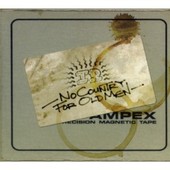 Now here’s an interesting one. International Rescue, or IR, hit their peak in the post-punk early 80s in East Yorkshire with lots of Peel plays, a prospective Polydor deal and a substantial live following in the north-east of England. Then the deal fell through and, after releasing a couple of singles, guitarist Stephen Skinner left to work with Orange Juice then Edwyn Collins as a solo artist for 15 years and the band went the way of most small bands, slowly grinding to a halt. Which is where the story usually ends, but this one has a bit of a twist in the tail.
Now here’s an interesting one. International Rescue, or IR, hit their peak in the post-punk early 80s in East Yorkshire with lots of Peel plays, a prospective Polydor deal and a substantial live following in the north-east of England. Then the deal fell through and, after releasing a couple of singles, guitarist Stephen Skinner left to work with Orange Juice then Edwyn Collins as a solo artist for 15 years and the band went the way of most small bands, slowly grinding to a halt. Which is where the story usually ends, but this one has a bit of a twist in the tail.
In 2011, Stephen Skinner (vocals/guitar), David Waller (guitar) and Chaz Cook (bass) decided to reform the band. Spec (the original drummer) couldn’t make it but Joel Cash was recruited in his place and the band played a triumphant hometown return gig. One thing led to another, songs were written and “No Country for Old Men” was recorded for the band’s own Cowboy City Records label.
The album opens with the gentle country feel of the pleasant but unremarkable “If I’m Going Down” and eases through the jangly riffs of “Don’t Ever Change” and “I Don’t Know What it is, But I Like it a Lot”(which sounds heavily inspired by the Monkees’ “Last Train to Clarksville”). The album finally grabs the attention with “He’s the Man” which shows some lyrical invention, although I’m not sure about “the man who put the nonce in nonsense” and “It’s my Parade” which is a 60s girl group pastiche leaning heavily on the Lesley Gore (or Dave Stewart and Barbara Gaskin) classic “It’s my Party”. “It’s All Tongue in Cheek” is a twisted love song in the style of “My Funny Valentine”, while the idea of “Let’s Rip it Up” seems to be to use as many lyrical clichés as possible in one song, which also applies to “Love Train” to a certain extent.
Three of the last four songs on the album have a more personal feel and, for me, work much better than some of the earlier academic exercises in songwriting. “The Beast of Love” deals with the experience of being struck by love, passion, lust or all three, while “Cowboy City” seems to be about the reformation of the band and “The Old River Bed” seems to look back nostalgically to a happier, more innocent time.
Overall, the album has a very 60s/70s feel which is accentuated by the backing vocals (credited to Laura and Maisie) which could have been taken straight from the Shangri-Las. The lead vocal (imagine David Gedge meets Paul Heaton) is a little fragile and sometimes a little strained at the higher end of the range but generally works well within the framework of the songs. For me, there were hints of some of the classic Peel bands here (Half Man, Half Biscuit or Sultans of Ping) with a twist of pop and country.
The album works best when the songs are about personal issues; some of the remainder sound a little contrived by comparison but it’s still a very listenable album. What I admire most is that the members of IR are doing this because they love it and they want to do it. There’s no megabucks reunion tour on offer or the chance of a lucrative greatest hits re-package, just the chance to get the new songs out to old, and hopefully new, fans and probably play a few gigs. For that, I completely respect them.
Out Monday June 17 on Cowboy City Records (CBOYC020812).
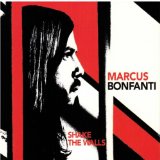 If anyone’s paying attention you might have noticed that I wrote about Marcus Bonfanti earlier this year when he did an unplugged gig in the very un-blues setting of the Hippodrome Casino where he previewed some of the songs from his album “Shake the Walls” which is released on Monday June 17 on Jigsaw (SAW4). The acoustic preview was a bit like a pencil drawing of painting; it gave a hint of the big picture but a lot of the colours and textures were missing. With his classic blues band line-up of bass (Scott Wiber), drums (Alex Reeves) and Hammond organ (Paddy Milner) on the album, the arrangements are filled out perfectly, with the exception of “The Bittersweet” which was written as a solo acoustic piece and works perfectly in that format.
If anyone’s paying attention you might have noticed that I wrote about Marcus Bonfanti earlier this year when he did an unplugged gig in the very un-blues setting of the Hippodrome Casino where he previewed some of the songs from his album “Shake the Walls” which is released on Monday June 17 on Jigsaw (SAW4). The acoustic preview was a bit like a pencil drawing of painting; it gave a hint of the big picture but a lot of the colours and textures were missing. With his classic blues band line-up of bass (Scott Wiber), drums (Alex Reeves) and Hammond organ (Paddy Milner) on the album, the arrangements are filled out perfectly, with the exception of “The Bittersweet” which was written as a solo acoustic piece and works perfectly in that format.
The album starts in the way I like albums to start, with a statement of intent. “Alley Cat” opens with a rising guitar riff before the band kicks in followed by Marcus’s full-throated blues growl and we’re off and running with “Cheap Whisky” next up in a similar vein. The album covers a wide range of blues styles from the electric high-powered blues of “Jezebel” to the acoustic “We All Do Bad Sometimes”, the country-styled “Blind Alley” and the solo classic “The Bittersweet”. “Shake the Walls” demonstrates the full range of Marcus Bonfanti’s instrumental and vocal abilities from all-out raucous electric workouts to acoustic ballads and all stops in between. The sequencing of the album is absolutely spot on as well; after every couple of stompers, there’s a change of pace with to an acoustic blues or something with a gentler country inflection.
If you wanted a perfect showcase for Marcus Bonfanti’s work, then this it. He’s perfectly convincing as a player with all of the styles on the album from the opening riff-based electric songs to the solo acoustic album closer “The Bittersweet”. What sets Marcus apart from the many great blues players around at the moment (and there are a lot of them out there) is the quality and power of his voice. It works over the whole dynamic range of the album and he can do it live as well. If you wanted a comparison for this album I think Rory Gallagher at his peak, in the “Calling Card” era, is about right.
The only thing that I’m not sure about on “Shake the Walls” is the quality of the lyrics. I know that blues at the moment is much more about the poetry of the playing, but a lot of the lyrics here are the old blues clichés of whisky and bad women. The chorus of the opening track starts with the lines “She got the claws out like an alley cat, she got the impact of a heart attack”. It’s not quite as bad as Duran Duran’s “serious as a nuclear war”, but it’s going down that same highway. But I guess if you wanted clever, meaningful lyrics you would all be listening to Jackson Browne albums and not British blues.
Anyway, it’s a small criticism because I love the playing, the arrangements and the dynamics of the album. It’s not just one for the blues purists; there are lots of different musical styles on offer here. Get the album when it’s released on Monday but, even better, go out and see Marcus and the band on tour from Thursday June 20. You can get the dates and even a free download of “Cheap Whisky” from his website.
 Eve made the transition from American hip-hop star to first name-only sitcom superstar somewhere around 2003; ambitious, talented and with an androgynous beauty that sells (a clothing line and perfume) she was on the way to becoming a household name, at least in her native country. Since then though, no new music, although she’s been trying since 2007, a year after her sitcom was cancelled and new material was ‘tested’ (a depressing phrase if ever there was one) and didn’t get the required reaction. Record label problems and personal issues have finally been resolved resulting in “Lip Lock”, Eve’s first album for a decade.
Eve made the transition from American hip-hop star to first name-only sitcom superstar somewhere around 2003; ambitious, talented and with an androgynous beauty that sells (a clothing line and perfume) she was on the way to becoming a household name, at least in her native country. Since then though, no new music, although she’s been trying since 2007, a year after her sitcom was cancelled and new material was ‘tested’ (a depressing phrase if ever there was one) and didn’t get the required reaction. Record label problems and personal issues have finally been resolved resulting in “Lip Lock”, Eve’s first album for a decade.
Eve’s two previous albums were built around the tried and tested formula of rapped verses and sung choruses, ably demonstrated on one of her biggest hits “Who’s That Girl”; her assured, effortless rapping far more distinctive and compelling than her just adequate vocal abilities. It’s her rapping that is featured almost exclusively on “Lip Lock”, the bloated list of collaborators usually providing the endless, radio friendly choruses. It’s not a coincidence that the tightest and most impressive track is the Major Lazer indebted “Grind or Die”; it snaps and bleeps and is the essence of Eve. There’s no chorus to speak of, just that hungry, defiant rap; it lasts a little over 2 minutes but is the track that makes the most lasting impact.
There is some fun to be had here with the big and stupid, Swizz Beatz produced “Mama In The Kitchen” featuring Snoop Dogg and Dawn Richard, an artist who truly understands what’s required to be innovative r’n’b star in 2013, which adds colour to the one true attempt, thankfully, at EDM on “Keep Me From You”, sounding so like Calvin Harris that I must check that it’s not on his album. “She Bad Bad” balances hard and soft nicely and the opening track “Eve” makes a snaking, hypnotic use of the word ‘eve’ and is at least a pleasant listen but then you’ve probably not come for that.
The remainder of “Lip Lock” struggles. “Make It Out of This Town” is one of 3 inspirational, ’empowering’ stinkers, the type of which clogged up Nicki Minaj’s debut album (when I say debut I mean the first version of ‘Pink Friday’, there have been 2 further re-issues since – but that’s another story) and typifies the radio friendly (bland) pop r’n’b that along with EDM currently dominates American radio. This one features Cobra Starship on the chorus and Chrisette Michele does the exact same thing on the chorus of the soggy “Never Gone”. “Forgive Me” is a thin, disposable, island- pop Rhianna reject and the crowded and dated “Wanna Be” features, amongst others, a phoned-in and almost unrecognisable Missy Elliott. Pale and stale indeed.
A lot has changed in ten years, not just music but the entire music industry itself. There is a feeling that Eve struggles to understand what her place is now in 2013, there are new female rappers like Angel Haze, Azealia Banks and Iggy Azalea who feel far more complicated and relevant and, just as importantly, sonically propulsive with the most successful, of course, being the global brand that is Nicki Minaj. “Lip Lock” contains a couple of dancefloor bangers at most and with “Keep Me From You” she could have a sizable hit but, apart from that, there is little here that reasserts Eve’s position in contemporary music; a disappointing, confused return.



